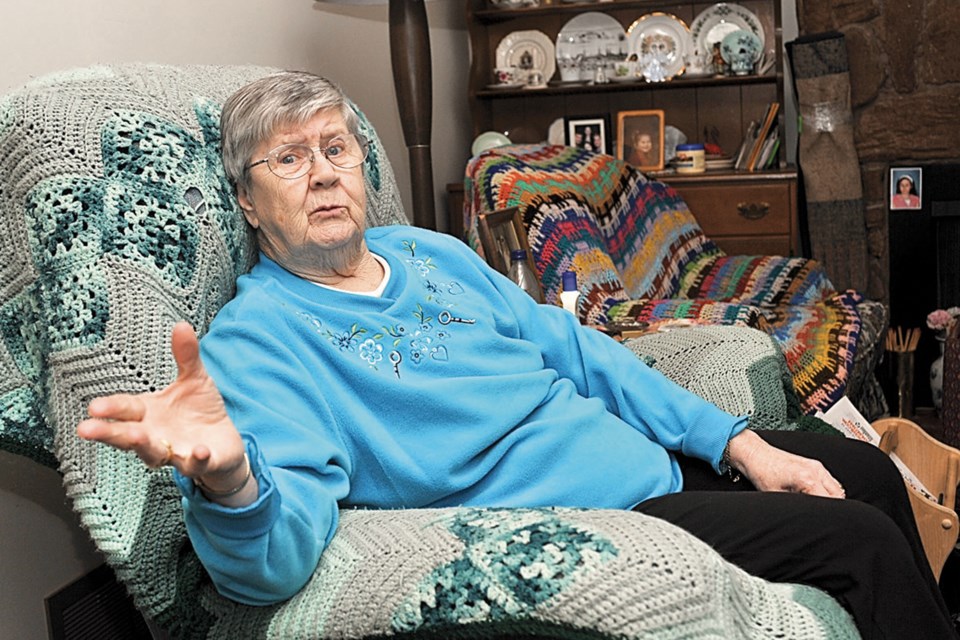A Burnaby senior who credits a fecal transplant for saving her life four years ago is dismayed the Fraser Health Authority has suspended a pilot program that would have seen the procedure made available to others.
Jane Thomas felt she had nothing left to lose when she agreed to become Fraser Health’s first recipient of a fecal transplant in 2010.
Infected with anti-biotic-resistant Clostridium difficile (C. difficile) at Burnaby Hospital two years earlier when she was being treated for a bowel obstruction, Thomas had been plagued with infectious diarrhea and lost more than 20 pounds.
“They let me out, and there was nothing more they could do,” she told the NOW Tuesday, “and then I had to go back again because the drugs weren’t helping. I was sick all the time.”
Afraid her patient would die, Thomas’s doctor Jeanne Keegan-Henry set out to perform Fraser Health’s first fecal transplant.
She bought a blender from a drug store, labeled it “Don’t Use For Food,” blended up a mix of saline and donor feces provided by Thomas’s daughter, and implanted the solution via a colonoscopy.
The strange treatment is understood to work by balancing out-of-control, toxin-producing C. difficile bacteria with “good” bacteria from healthy donor feces.
As far as Thomas is concerned, the procedure saved her life.
Within a month, she was feeling better, and today, at age 89, she is still active and enjoying time with her six grandchildren.
“I’ve done well so far, and that you can tell them,” she said.
Keegan-Henry, however, was barred from performing the procedure again because the treatment was considered experimental.
The local doctor – quoted in the latest edition of Fraser Health’s In-Focusmagazine – admits to having been “pretty publicly hostile” toward the health authority at the time.
Enlisting Thomas as a PR ally, she argued publicly that the procedure was life saving and cost effective.
Her efforts were poised to pay off.
New data – including a study published in 2013 in the New England Journal of Medicine that showed fecal transplants cured 94 per cent of patients, compared to 27 per cent with the anti-biotic vancomycin – convinced Fraser Health to launch a pilot project that would have seen the procedure offered at Burnaby and Ridge Meadows hospitals.
But that project was put on hold last Friday when Fraser Health was made aware of Health Canada statements saying it considers fecal transplants “investigational,” meaning they can only be performed within the context of an authorized clinical trial.
That requirement was news to Fraser Health officials.
“We didn't solicit Health Canada approval for the pilot since we did not consider faecal content would be considered an experimental drug,” Fraser Health executive medical director of infection prevention and control Elizabeth Brodkin told the NOW in a written statement.
Brodkin said the health authority wasn’t considering a clinical trial for fecal transplants since health officials here feel there have been sufficient clinical trials to show the treatment is “safe and effective.”
“We are currently exploring options for next steps and hope to be able to offer this life saving treatment to our patients in the very near future,” she wrote.
Thomas, however, is worried about the potential toll the delay will take on people currently suffering as she once did.
“In the meantime how many people are going to die?” she asked. “I think they should be able to do it. I can’t see why the government is stopping it. It’s done me OK.”
-30-



